Презентація на тему «Electronic Arts»
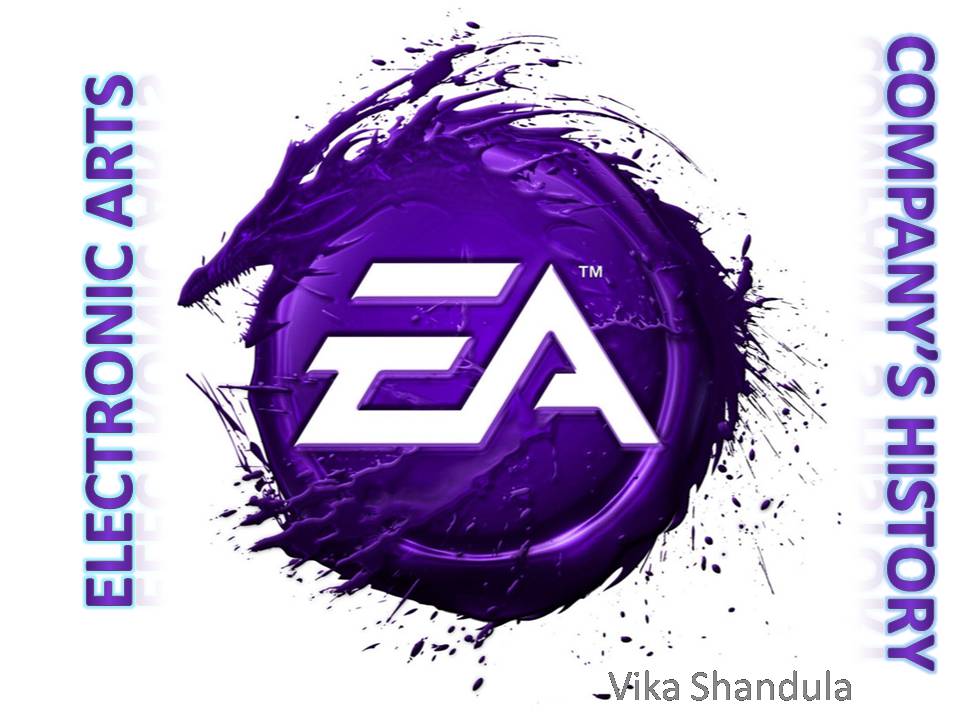
Vika Shandula
Electronic Arts
company's history
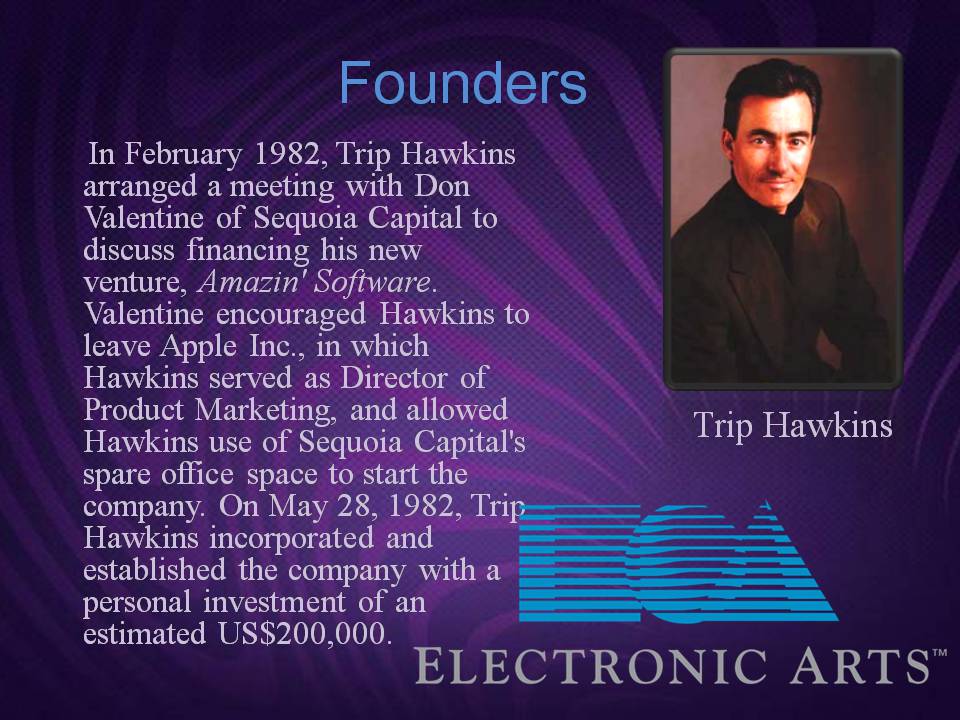
Founders
In February 1982, Trip Hawkins arranged a meeting with Don Valentine of Sequoia Capital to discuss financing his new venture, Amazin' Software. Valentine encouraged Hawkins to leave Apple Inc., in which Hawkins served as Director of Product Marketing, and allowed Hawkins use of Sequoia Capital's spare office space to start the company. On May 28, 1982, Trip Hawkins incorporated and established the company with a personal investment of an estimated US$200,000.
Trip Hawkins
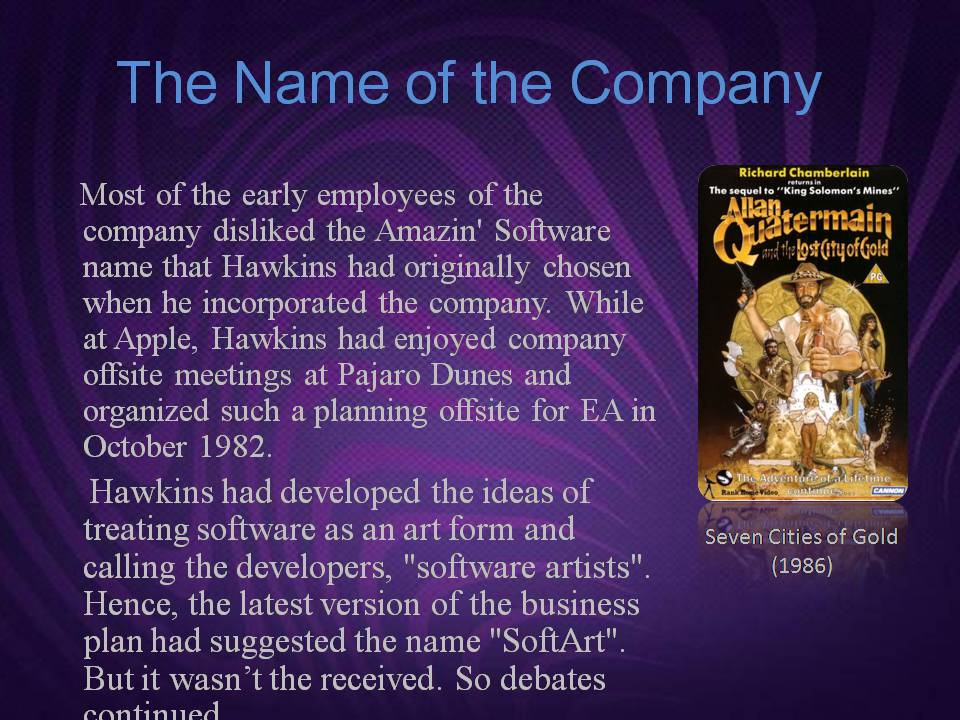
The Name of the Company
Most of the early employees of the company disliked the Amazin' Software name that Hawkins had originally chosen when he incorporated the company. While at Apple, Hawkins had enjoyed company offsite meetings at Pajaro Dunes and organized such a planning offsite for EA in October 1982.
Hawkins had developed the ideas of treating software as an art form and calling the developers, "software artists". Hence, the latest version of the business plan had suggested the name "SoftArt". But it wasn't the received. So debates continued.
Seven Cities of Gold (1986)
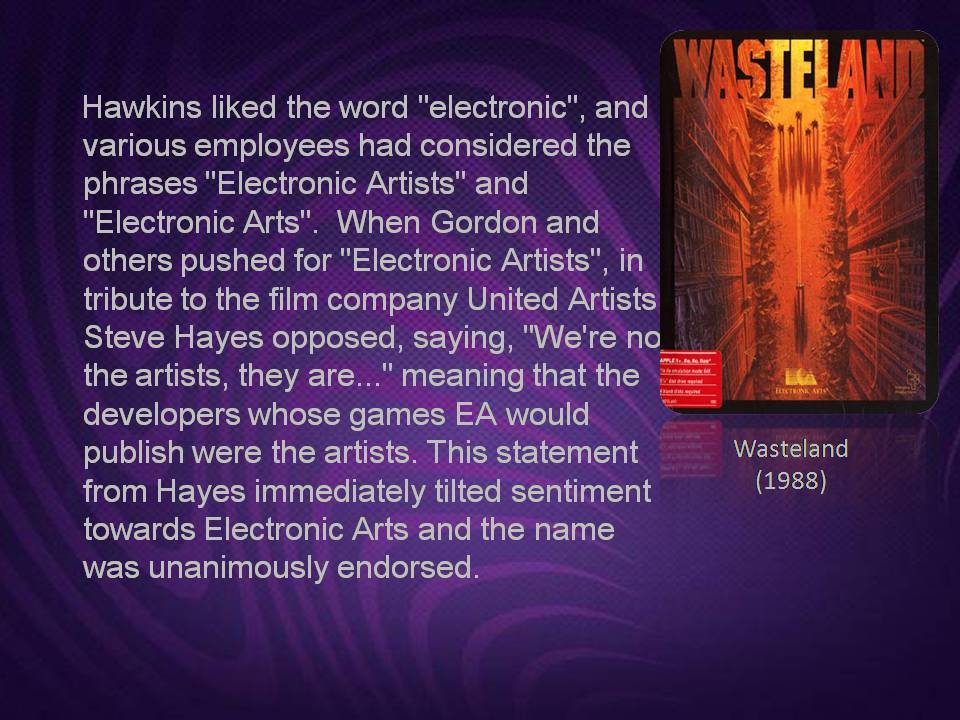
Hawkins liked the word "electronic", and various employees had considered the phrases "Electronic Artists" and "Electronic Arts". When Gordon and others pushed for "Electronic Artists", in tribute to the film company United Artists, Steve Hayes opposed, saying, "We're not the artists, they are..." meaning that the developers whose games EA would publish were the artists. This statement from Hayes immediately tilted sentiment towards Electronic Arts and the name was unanimously endorsed.
Wasteland
(1988)
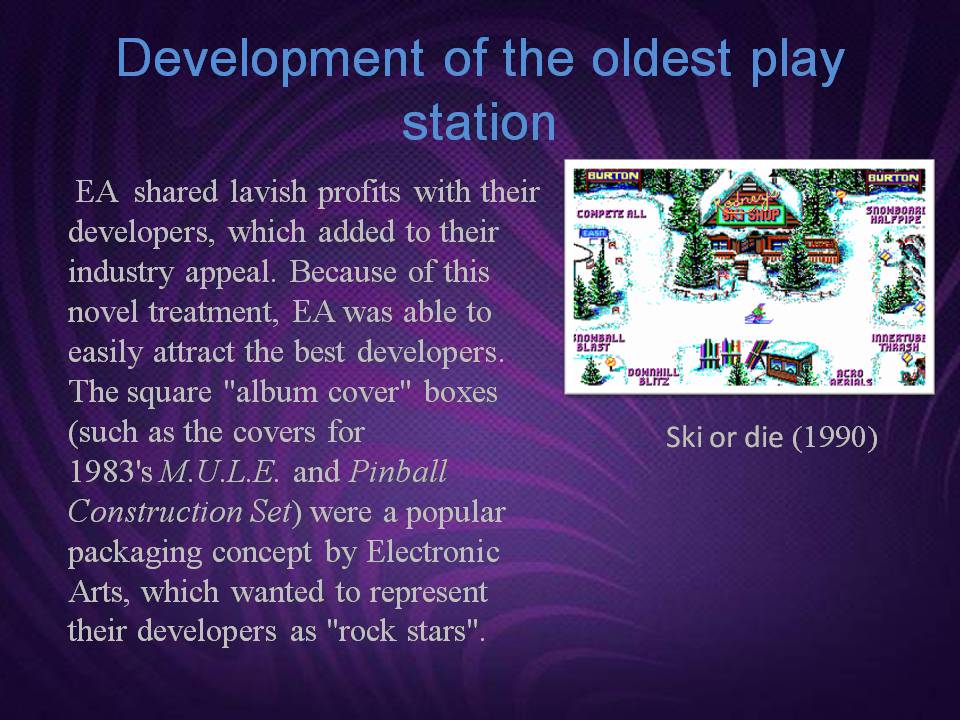
Development of the oldest play station
EA shared lavish profits with their developers, which added to their industry appeal. Because of this novel treatment, EA was able to easily attract the best developers. The square "album cover" boxes (such as the covers for 1983's M.U.L.E. and Pinball Construction Set) were a popular packaging concept by Electronic Arts, which wanted to represent their developers as "rock stars".
Ski or die (1990)
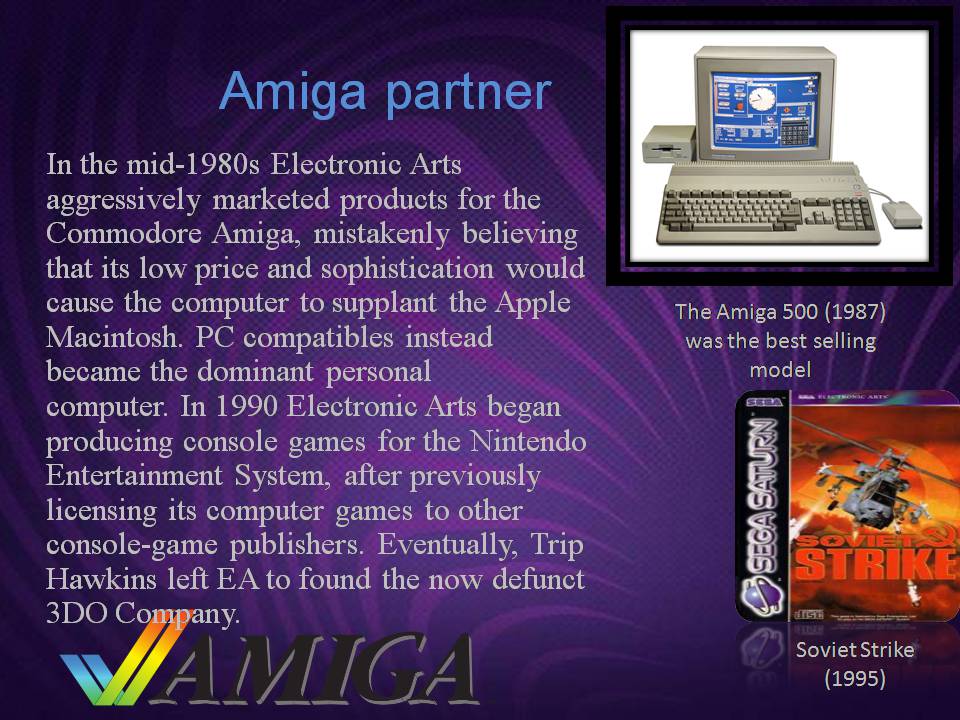
Amiga partner
In the mid-1980s Electronic Arts aggressively marketed products for the Commodore Amiga, mistakenly believing that its low price and sophistication would cause the computer to supplant the Apple Macintosh. PC compatibles instead became the dominant personal computer. In 1990 Electronic Arts began producing console games for the Nintendo Entertainment System, after previously licensing its computer games to other console-game publishers. Eventually, Trip Hawkins left EA to found the now defunct 3DO Company.
The Amiga 500 (1987) was the best selling model
Soviet Strike
(1995)
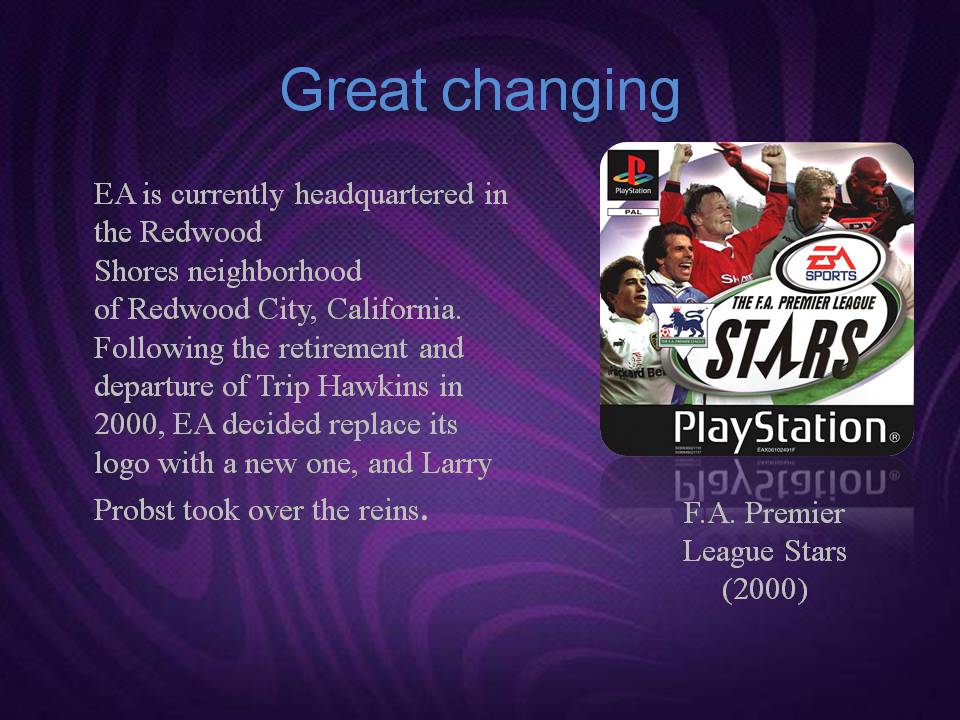
Great changing
EA is currently headquartered in the Redwood Shores neighborhood of Redwood City, California. Following the retirement and departure of Trip Hawkins in 2000, EA decided replace its logo with a new one, and Larry Probst took over the reins.
F.A. Premier League Stars
(2000)
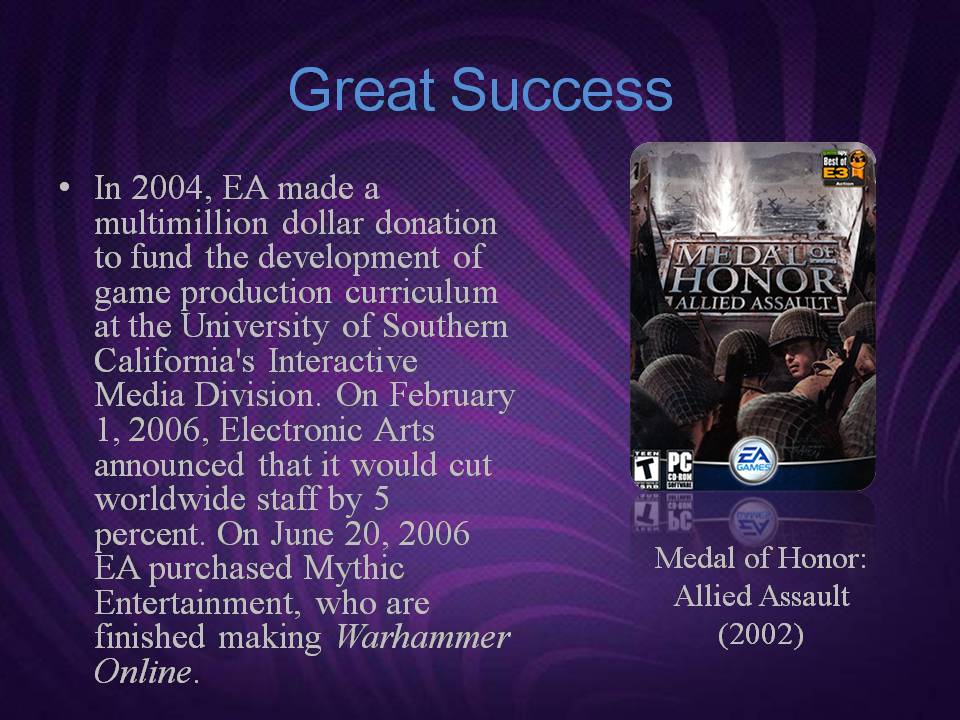
Great Success
In 2004, EA made a multimillion dollar donation to fund the development of game production curriculum at the University of Southern California's Interactive Media Division. On February 1, 2006, Electronic Arts announced that it would cut worldwide staff by 5 percent. On June 20, 2006 EA purchased Mythic Entertainment, who are finished making Warhammer Online.
Medal of Honor: Allied Assault
(2002)
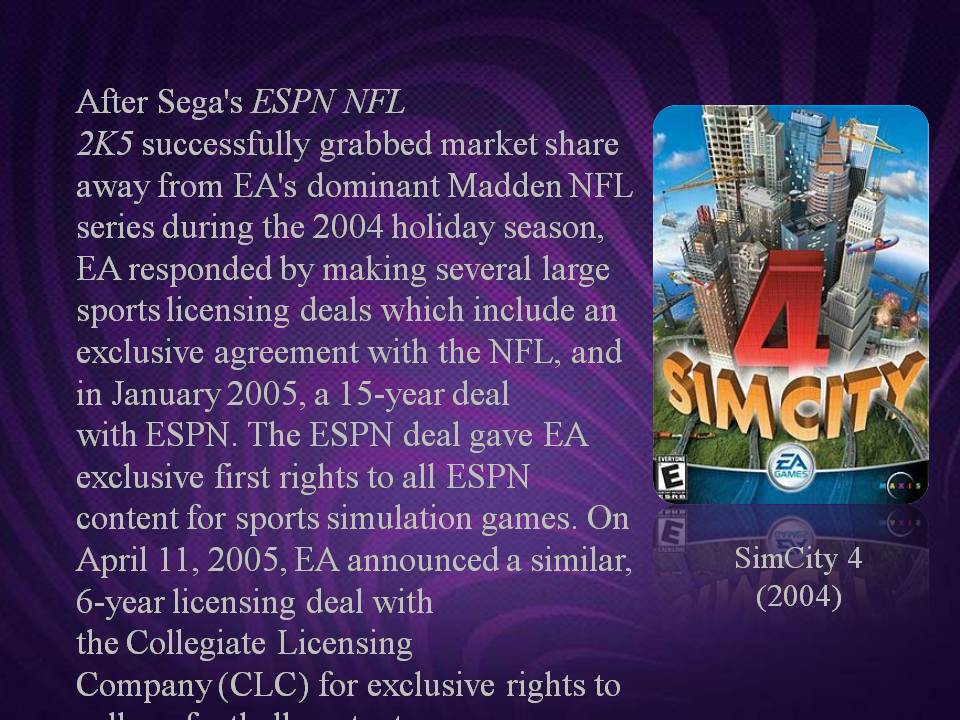
After Sega's ESPN NFL 2K5 successfully grabbed market share away from EA's dominant Madden NFL series during the 2004 holiday season, EA responded by making several large sports licensing deals which include an exclusive agreement with the NFL, and in January 2005, a 15-year deal with ESPN. The ESPN deal gave EA exclusive first rights to all ESPN content for sports simulation games. On April 11, 2005, EA announced a similar, 6-year licensing deal with the Collegiate Licensing Company (CLC) for exclusive rights to college football content.
SimCity 4
(2004)
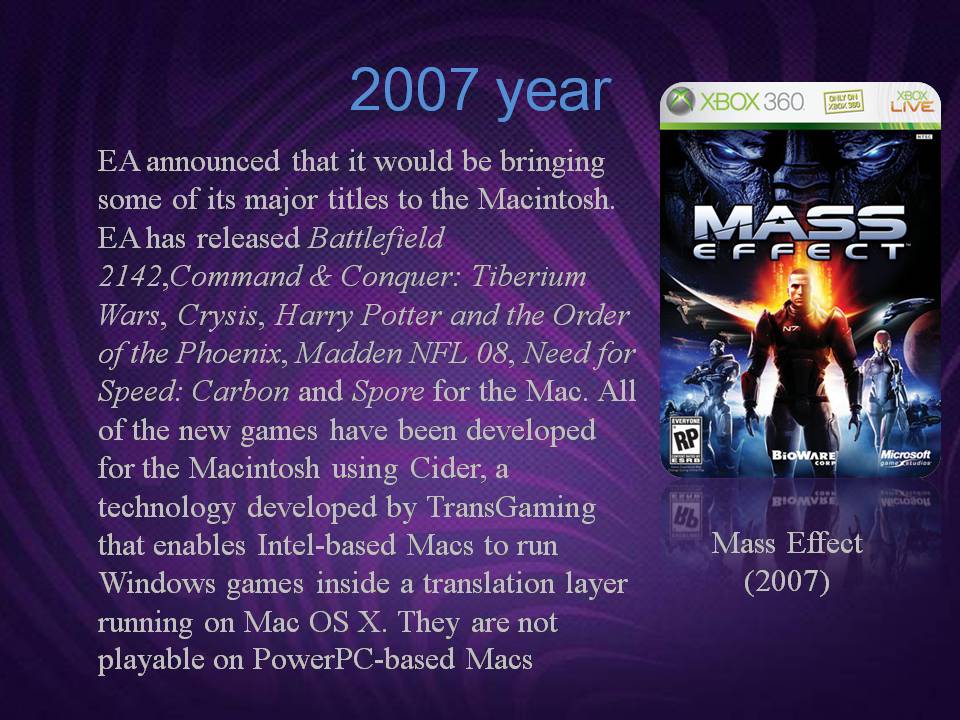
2007 year
EA announced that it would be bringing some of its major titles to the Macintosh. EA has released Battlefield 2142,Command & Conquer: Tiberium Wars, Crysis, Harry Potter and the Order of the Phoenix, Madden NFL 08, Need for Speed: Carbon and Spore for the Mac. All of the new games have been developed for the Macintosh using Cider, a technology developed by TransGaming that enables Intel-based Macs to run Windows games inside a translation layer running on Mac OS X. They are not playable on PowerPC-based Macs
Mass Effect
(2007)
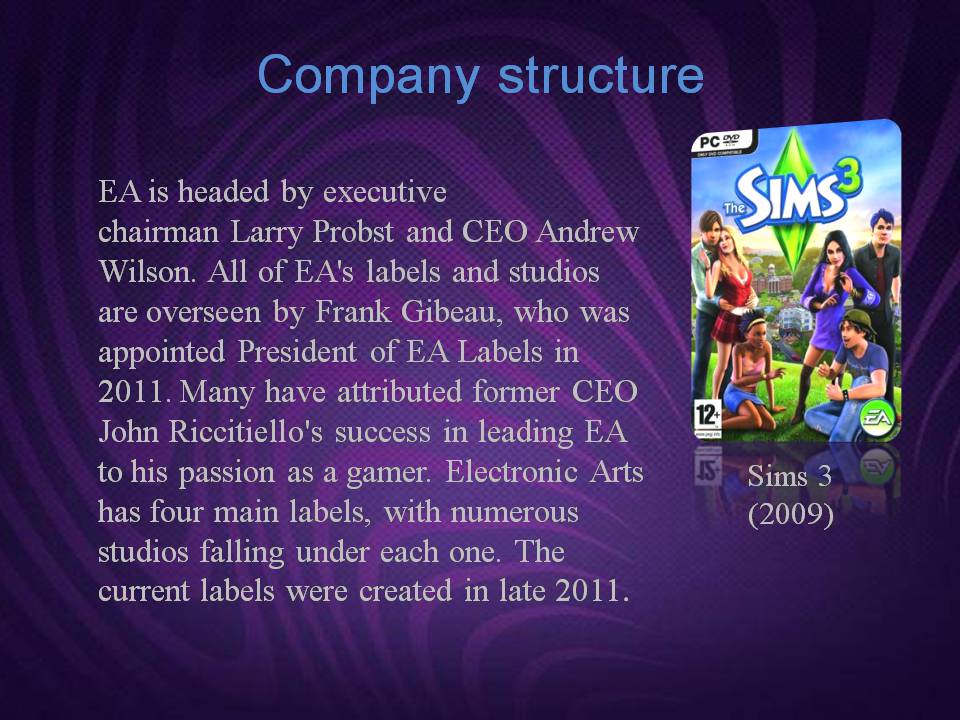
Company structure
EA is headed by executive chairman Larry Probst and CEO Andrew Wilson. All of EA's labels and studios are overseen by Frank Gibeau, who was appointed President of EA Labels in 2011. Many have attributed former CEO John Riccitiello's success in leading EA to his passion as a gamer. Electronic Arts has four main labels, with numerous studios falling under each one. The current labels were created in late 2011.
Sims 3 (2009)
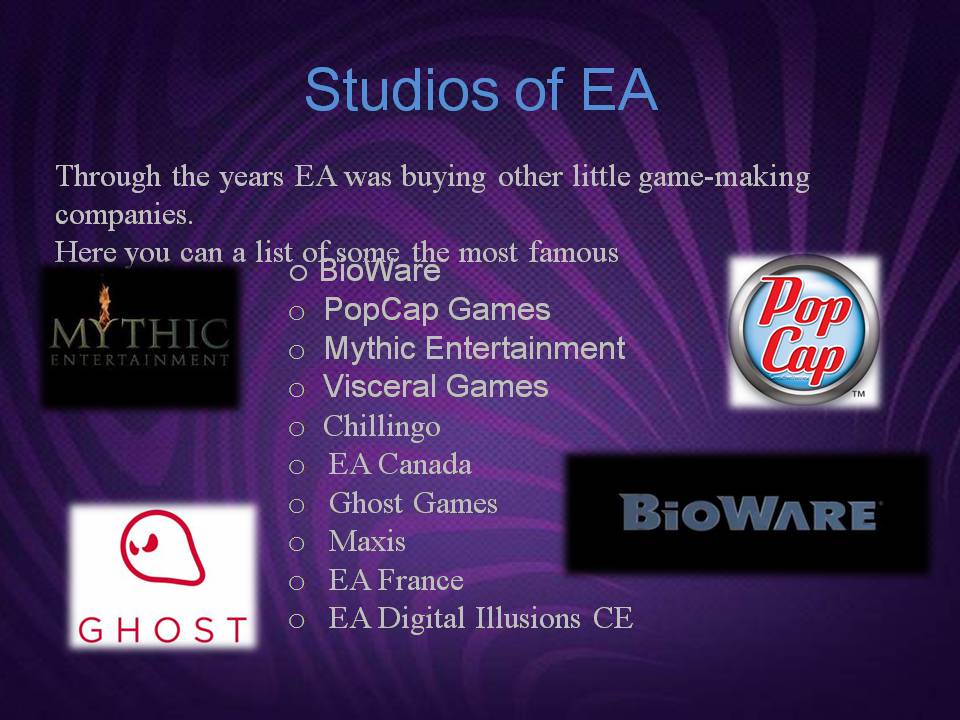
Studios of EA
Through the years EA was buying other little game-making companies.
Here you can a list of some the most famous
BioWare
PopCap Games
Mythic Entertainment
Visceral Games
Chillingo
EA Canada
Ghost Games
Maxis
EA France
EA Digital Illusions CE
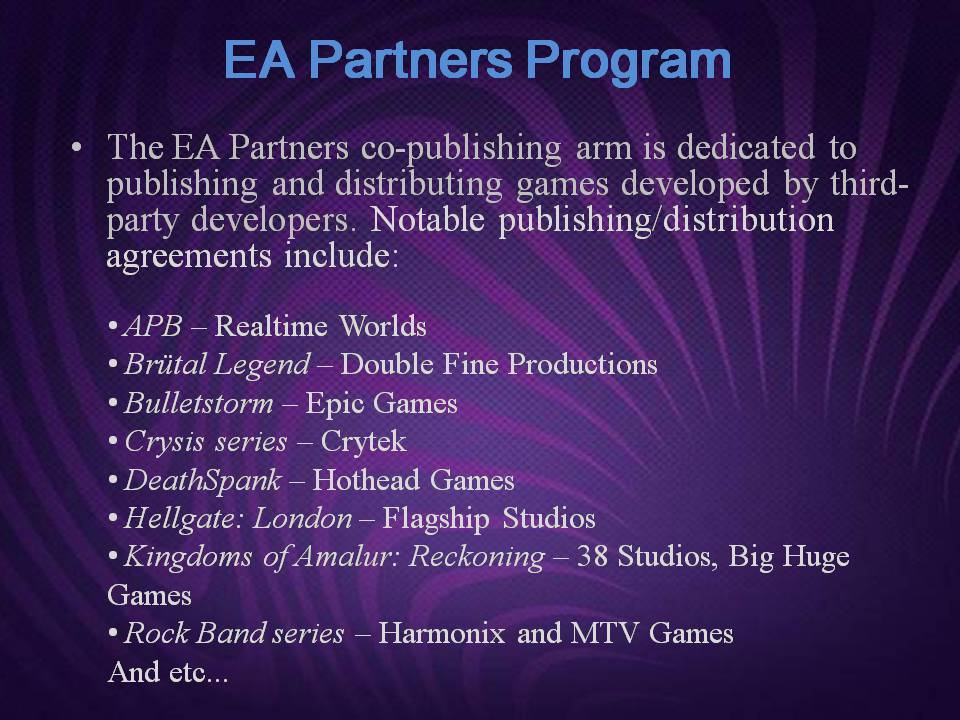
EA Partners Program
The EA Partners co-publishing arm is dedicated to publishing and distributing games developed by third-party developers. Notable publishing/distribution agreements include:
APB – Realtime Worlds
Brütal Legend – Double Fine Productions
Bulletstorm – Epic Games
Crysis series – Crytek
DeathSpank – Hothead Games
Hellgate: London – Flagship Studios
Kingdoms of Amalur: Reckoning – 38 Studios, Big Huge Games
Rock Band series – Harmonix and MTV Games
And etc...
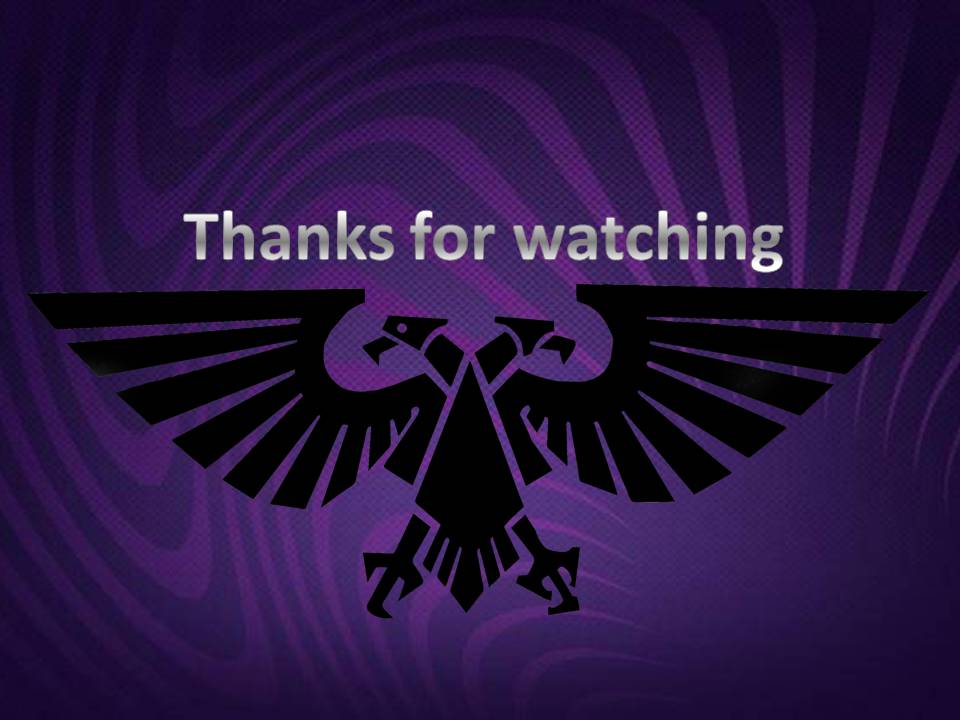
Thanks for watching